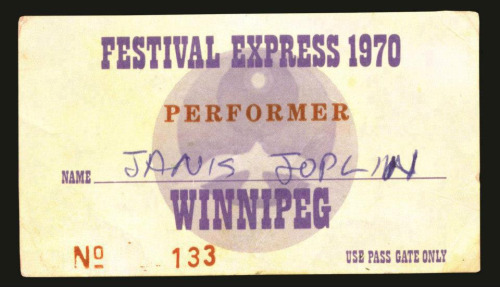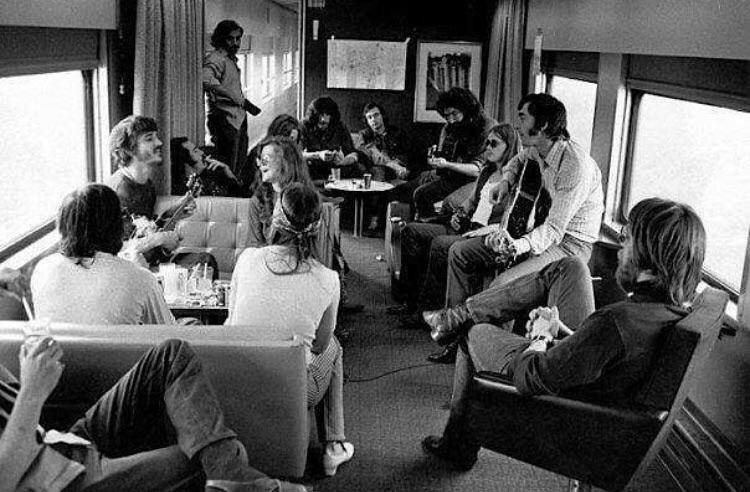

All of the bands that we baby boomers remember had their tours. How many tours by train do remember?
The most famous of such train tours was billed as the Transcontinental Pop Festival. The performers called it the Festival Express. It traveled through Canada between June 24th and July 5th, 1970, making stops in Montreal, Toronto, Winnipeg, Calgary, and Vancouver. Stadiums in each of the cities hosted the concerts.
I am surprised that I do not remember anything about the tour.
The Bands on the Festival Express
The tour was headlined by some of North America’s most popular rock bands of the 1960s and 1970s. Some of the bands were already extremely successful and are familiar to we Baby Boomers. Others were happy to enjoy the limelight to boost their own careers. The bands included the Grateful Dead, Janis Joplin, The Band, Buddy Guy, Flying Burrito Bros, and Delaney & Bonnie & Friends, Sha Na Na, Traffic, and Ginger Baker’s Air Force.
Despite the quality of the groups, the venues were not packed with admiring spectators.
Festival Express is a Financial Bust
The groups had dreamed of great financial gain from the tour, but alas that was far from the reality. They proposed a budget of $900,000 USD, with more than half going to the performers. Gross income from the tour was only $500,000. The promoter, Eaton-Walker Associates, lost between $350,000 and $500,000.
Some of the blame for the financial bust can be laid to The May 4th Movement that was formed and grew after the four students were gunned down by the Ohio National Guard at Kent State University. Among other things, the movement demanded free music and an end to “The Rip-Off Express” criticizing exorbitant ticket prices.
More than 2,500 protesters showed up outside the first venue in Toronto. Some of the protesters jumped through the gates. Other fought it out with Canadian Mounted Police. This angered on of the promoters, Ken Walker, so much that he punched the Calgary Mayor, Rod Sykes, square in the face when he tried to demand the kids of Calgary be let into the show gratis.
The protest killed the money collected at the gates of the rest of the venues.
For the performers, the journey through the Canadian countryside was a treat of a lifetime. Imagine these great performers just hanging out together riding down the rail. I would have loved to been working on that train.
Normally, the bands would have arrived at each venue separately, by plain. Instead they enjoyed each others company train they dubbed the Festival Express. The chartered the train from the Canadian National Railways. There were 14 cars, fully equipped with lounges and sleeping compartments. Of course, there were ample electricity sockets so musical instruments could be plugged in.
Festival Express – The Movie
The bands originally planned on producing a film about the tour. They dreams were dashed when it was obvious that the tour would be a financial disaster. Over the following years, the adventures on the The Transcontinental Pop Festival were circulated through the recording community.
In 2003 Festival Express, the documentary film was produced. The film combines some live footage shot during the concerts.
The footage had been stored for decades in the garage of the original producer Willem Poolman.
Some of the most interesting segments are footage within the aboard the train itself. It also includes current interviews with tour participants sharing their often humorous recollections of the events.
The Festival Express film is certain a must watch of baby boomers.
The movie is what most of the present generation will remember of the Transcontinental Pop Festival. Yet, like most rememberances of the 60s and 70s, it fall short of the actual experience that took place not too long after the Summer of Love and Woodstock.
See more of our 1960s Music articles here.

